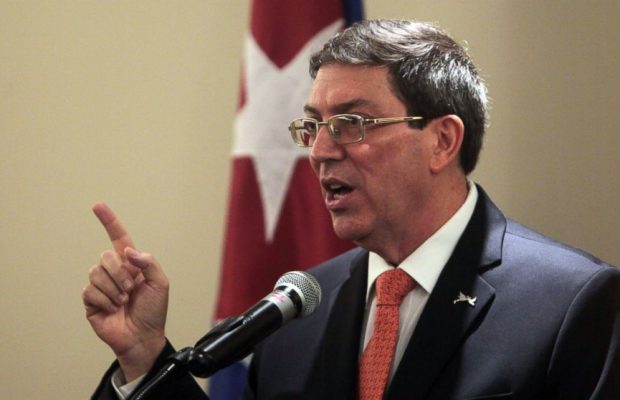THE United Nations General Assembly has for the record 29th time in its history voted against the US blockade of Cuba.
The economic blockade was imposed in 1960 following the successful revolution against capitalism led by Fidel Castro, and the nationalisation of properties belonging to US citizens and corporations.
Two years later, the blockade was strengthened. Former Cuban president Raul Castro and then-US president Barack Obama officially restored relations in July 2016, and that year the United States abstained on the resolution calling for an end to the embargo for the first time.
But Obama’s successor, Donald Trump, sharply criticised Cuba’s human rights record, and in 2017 the US again voted against the resolution.
On Wednesday, 184 of the 193-member General Assembly voted against the blockade but the United States and Israel opposed it while Brazil, Colombia and Ukraine abstained.
Four countries namely the Central African Republic, Myanmar, Moldova and Somalia did not vote.
Although the UN General Assembly resolutions are not legally binding and are unenforceable, they reflect world opinion.
And the vote has given Cuba an annual stage to demonstrate the isolation of the US on the embargo.
The General Assembly’s last vote in November 2019, during its 74th session, was 187-3 with the US, Israel and Brazil voting “no,” and Colombia and Ukraine abstaining.
The Assembly’s 75th session began in September 2020, but because of the COVID-19 pandemic the vote on the Cuba resolution was postponed.
Cuban foreign minister Bruno Rodriguez accused the Joe Biden administration of following Trump’s policies that tightened economic, commercial and financial sanctions and restricted travel by US citizens in a blow to its tourism sector.
This caused the country record losses estimated at US $5 billion.
“All these measures remain in force today and are being fully implemented,” he said. “And paradoxically, they are shaping up the behaviour of the current US administration particularly during the months when Cuba has experienced the highest COVID-19 infection rate, the highest number of fatalities and a much worse economic impact.”
Rodriguez said the restrictions remained despite the Democratic Party platform that “promised voters to swiftly reverse the actions taken by the administration of Donald Trump, particularly the elimination of restrictions on travel to Cuba, financial remittances and the implementation of the bilateral migration accords, including the granting of visas.”
He said a large majority of Americans supported lifting the embargo, restoring freedom to travel and establishing normal relations.
“There are some who put the blame of this pernicious inertia on the electoral ambitions associated to Florida or the balances, in no way transparent, of the political and legislative elites,” Rodriguez said.
He sharply disagreed with the assertion, accusing the US of “a massive, flagrant and systematic violation” of their human rights.
Rodriguez added that the embargo, which Cubans call a blockade, has deprived the country’s industries of funds and restricted food imports from the US to specific volumes that create shortages, rising prices, and long lines day after day in the midst of the COVID-19 pandemic.
“Cuba demands to be left in peace, to live without a blockade, and calls for an end to the persecution of our commercial and financial relations with the rest of the world,” said Rodriguez. “We call for an end to manipulation, discrimination and the obstacles to relations between Cubans living in the United States and their relatives in Cuba and the country where they were born.”
On October 22 last year, Rodríguez reported that for the first time in the history of the genocidal US economic, commercial and financial blockade against Cuba, the damages and losses caused surpassed a total of $5 billion in a year’s time.
In the annual report prepared by the Ministry describing the magnitude of damage suffered as a result of this extraterritorial policy, to current and future prospects for development on the island, the Rodriguez denounced the increasing aggressiveness of the US government.
He said without showing concern for the COVID-19 pandemic, the US imposed more sanctions on Cuba, in a flagrant violation of all norms governing foreign trade and investment.






